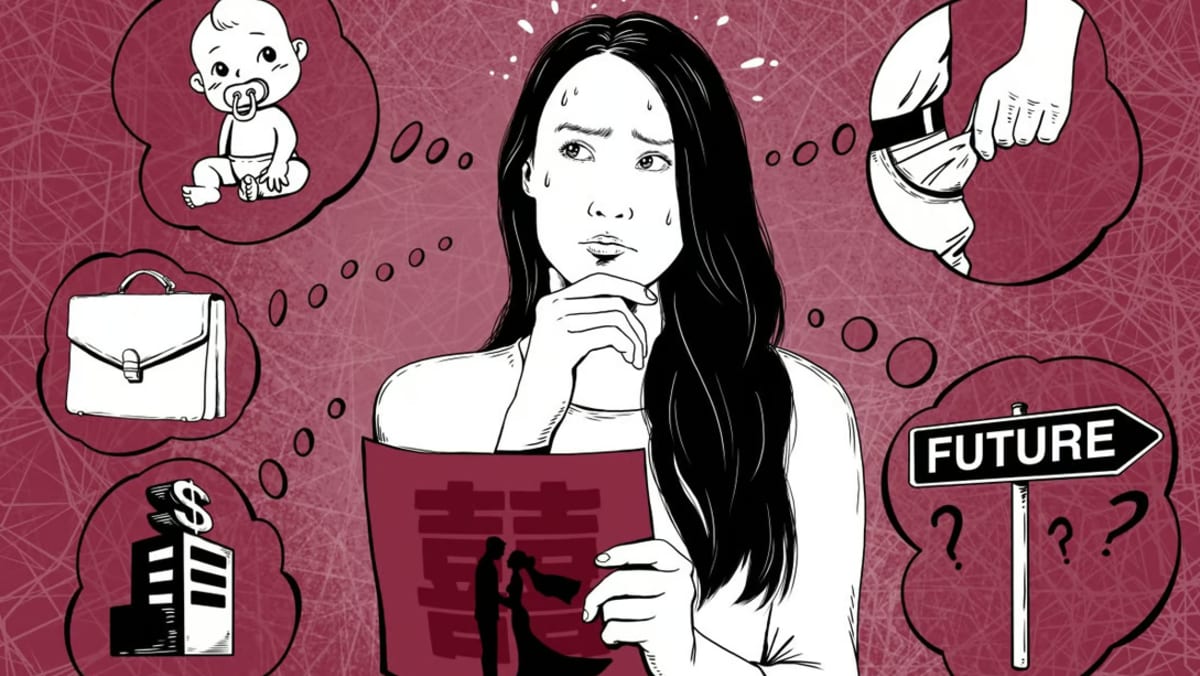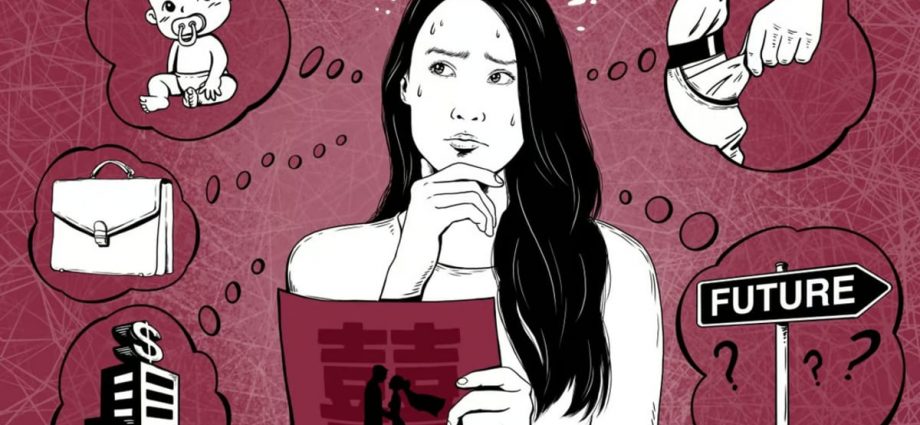
Media worker Liu Maomao has a special list of contacts on her QQ and WeChat messaging apps, and in them lies a gaggle of more than a dozen blind dates from yesteryear.
But rather than serving as a selection of potential suitors, it’s become a neglected rolodex that the 36-year-old Beijing resident hasn’t refreshed or updated in six years.
She says she’s simply no longer “in the mood for love”. “There is no particular reason … maybe just because it feels so good after living alone for a long time,” Liu said.
Liu is among the millions of young Chinese adults choosing not to marry, or to at least delay marriage, as they have become put off by the soaring costs of settling down and raising a family.
And this growing sense of apathy serves as a worrying red flag for policymakers as the country steels itself for a worsening demographic crisis.
The phenomena, while not unique to China, has been further exacerbated there after nearly three years of highly disruptive coronavirus curbs.
According to China’s Ministry of Civil Affairs, the number of newly married couples had dropped for eight straight years in 2021 to 7.64 million – a record low since the earliest release of such data in 1985.
And the trend has intensified this year: In the first three quarters, the number of couples that registered for marriage in China reached a historic low of 5.4 million.
Meanwhile, the number of individuals entering their first marriages – which is considered a better gauge among young adults and is more closely related to the birth rate – also dropped to the lowest level on record in 2021, at 11.58 million people.
And that was half of the peak level reached in 2013, according to the China Statistical Yearbook 2022.
RELUCTANCE TO MARRY EARLY
Demographers say that while the shrinking size of the marriageable population is one of the reasons for such declines, the increasing reluctance to marry, or marry early, is a more crucial factor.
According to Chinese census data, the average age for one’s first marriage increased to 28.67 in 2020, up from 24.89 in 2010.
While the delay of marriage, especially for women, is a natural process amid rapid urbanisation and the expansion of higher education, macroeconomic conditions such as soaring housing prices and intense employment pressure also come into play, forcing many people to give up trying to tie the knot, according to Jiang Quanbao, a demography professor at Xian Jiaotong University.
“Currently, there is still a lot of room for a further increase in the first marriage age. China may follow the trajectory of some neighbouring countries such as Japan and South Korea, in that average first-marriage age will continue to rise,” Jiang said.
Although the share of never-married people among the entire population is still low in China compared with many developed economies, for women with university degrees or above, the proportion of those who remain unwed is quite high, Jiang added.
According to a survey conducted last year by the Research Centre of the Central Committee of the Communist Youth League involving 2,905 unmarried urban youth aged between 18-26, about 44 per cent of female respondents said they did not plan to marry, compared with nearly 25 per cent of men.
From a positive point of view, this means modern Chinese women have more choices, rather than being a housewife, said Felisa Li, a Beijing-based public relations professional who has remained single.
“Previously, a woman’s place was more at home, as a wife and a mother, but now that is no longer the case,” the 36-year-old said. “Women can also live a great life by being independent, like having a job they like.”While China has kicked off rounds of supportive policies for child-rearing in the past year, from optimising maternity-leave schemes to offering more public childcare services, these are still just a drop in the bucket, Li said.
“If you live in first-tier cities, you will need at least a two-bedroom flat if you want a child. And that is very hard to achieve in Beijing. I have a one-bedroom flat now and I’ve already tried my best.”

